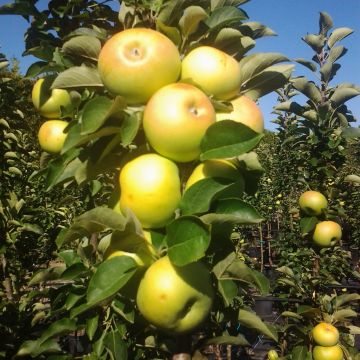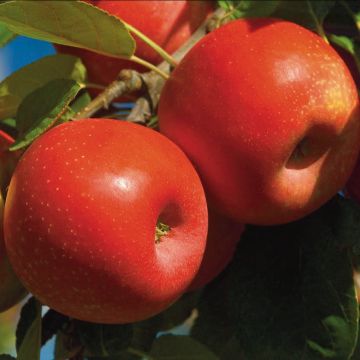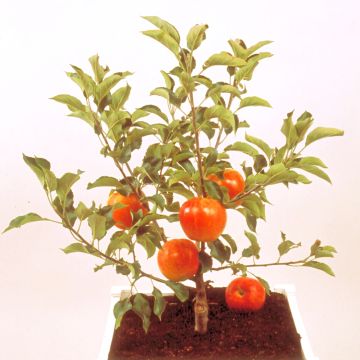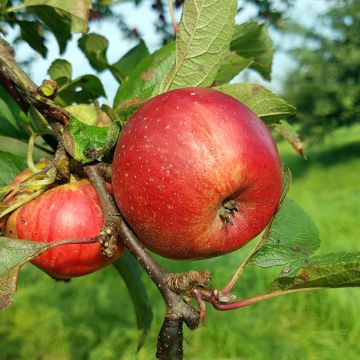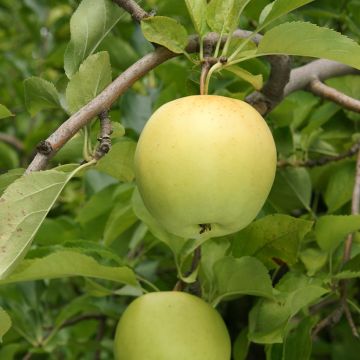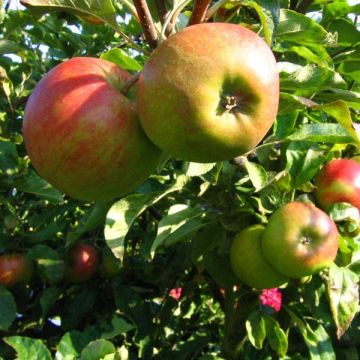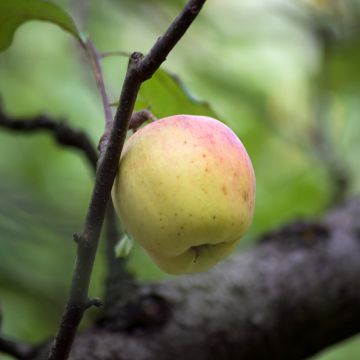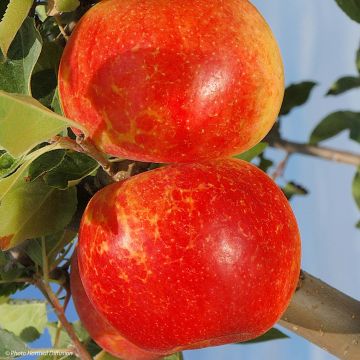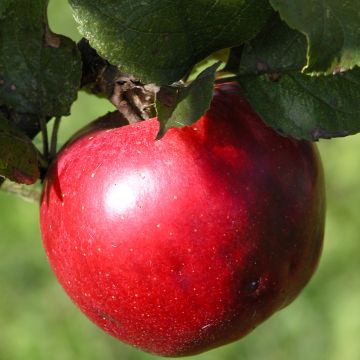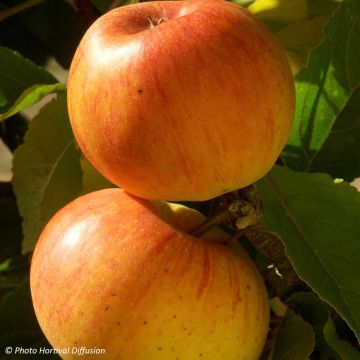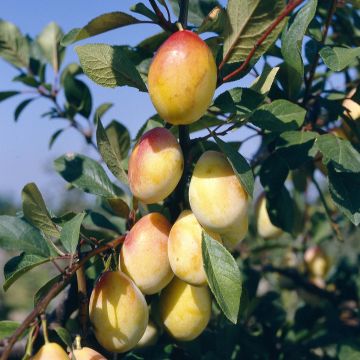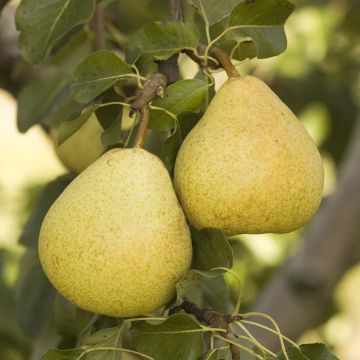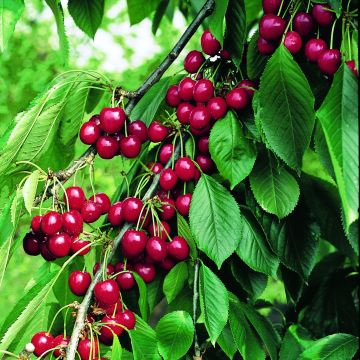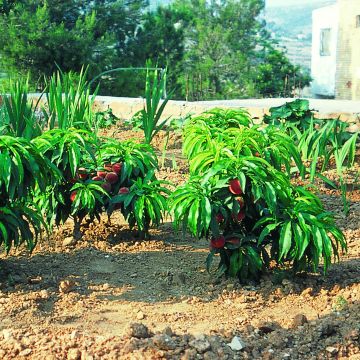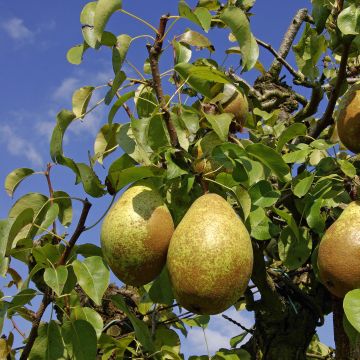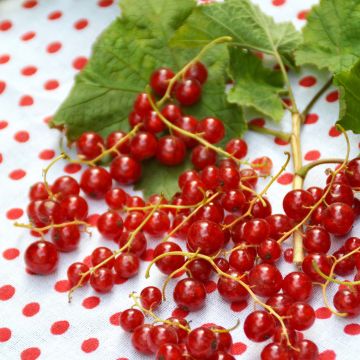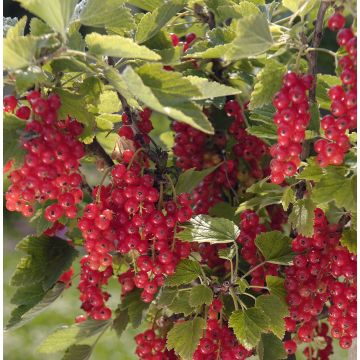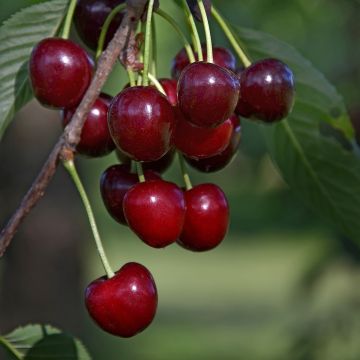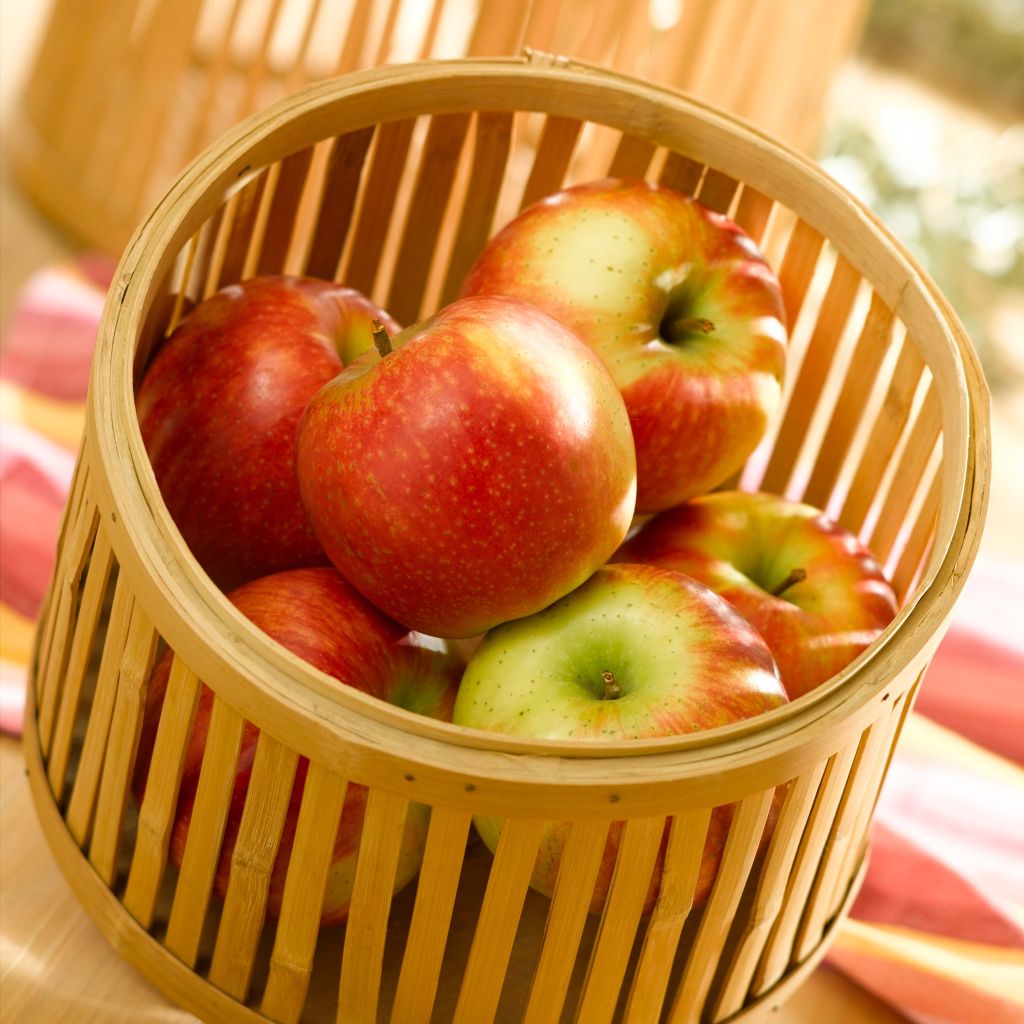

Apple Tree Delbard Jubilee - Malus domestica
Apple Tree Delbard Jubilee - Malus domestica
Malus domestica Delbard Jubilé® 'Delgollune'
Apple, Orchard apple, Table apple, Cultivated apple
Bonjour, Ce pommier n'a pas survécu, le bois tout sec, très déçu
Evelyne, 01/05/2023
Special offer!
Receive a €20 voucher for any order over €90 (excluding delivery costs, credit notes, and plastic-free options)!
1- Add your favorite plants to your cart.
2- Once you have reached €90, confirm your order (you can even choose the delivery date!).
3- As soon as your order is shipped, you will receive an email containing your voucher code, valid for 3 months (90 days).
Your voucher is unique and can only be used once, for any order with a minimum value of €20, excluding delivery costs.
Can be combined with other current offers, non-divisible and non-refundable.
Home or relay delivery (depending on size and destination)
Schedule delivery date,
and select date in basket
This plant carries a 6 months recovery warranty
More information
We guarantee the quality of our plants for a full growing cycle, and will replace at our expense any plant that fails to recover under normal climatic and planting conditions.
Description
The Delbard Jubilé Delgollune Apple Tree is a productive variety with a well-established reputation. It stands out for its fruit, coloured in red and gold, which offers delicate, crisp, juicy, and sweet flesh. Perfumed, it exhales a scent of honey, hazelnut, and banana that gourmets highly appreciate!
The Delbard Jubilé apples are harvested in October and can be consumed immediately until February. They are good-eating apples, which are best enjoyed right after harvest but can also be cooked. They grow on a vigorous, hardy tree and are less disease-resistant. It blooms abundantly in late April. To obtain a harvest of large-sized fruit, we recommend thinning the fruits early in the summer. The Delbard Jubilé® apple tree sometimes tends to alternate bearing: consider also performing fruiting pruning.
This apple tree is not self-fertile, so it should be planted in proximity to other varieties that bloom at the same time, such as Régali, Delbarestivale, Cybèle, Harmonie, Pomme des moissons, Royal Gala, or Reine des reinettes, to ensure pollination.
The apple tree (Malus domestica) is a fruit tree that belongs to the Rosaceae family. It is grown almost everywhere in the world and includes countless ancient and modern varieties that produce apples of varying sizes and flavours, ranging from sweet to tart. Apple trees are native trees in Europe, where their presence has been documented since ancient times. They are hardy, with some varieties tolerating temperatures as low as -30 °C (- 22°F), and can be grown almost anywhere.
The size of the domestic apple tree does not exceed ten meters in height and width. It can even be much smaller depending on the rootstock's vigour. This fruit tree usually has a tall trunk that naturally spreads out. It comes in various forms (bush, half-standard, standard...) and can be trained in numerous ways (column, espalier, palmette...)
The apple tree leaves are deciduous and arranged alternately on the branches. Their lamina is ovate and dentate. They have a dark green upper surface and a slightly downy whitish lower surface. In spring, the apple tree bears white or pinkish-white flowers grouped in corymbs. The apple flowers consist of 5 petals, surrounding a core of approximately 20 stamens. They give rise to fleshy fruits (from a botanical perspective, they are drupes), spherical and filled with seeds. Their colour, size, taste, and storage capability vary depending on the variety. Rarely self-fertile, the apple tree is a fruit tree that requires the presence of other apple trees blooming simultaneously and nearby for fruiting.
The apple tree can be grown in all climates, but it particularly appreciates temperate and relatively humid regions. It thrives in full sun and reasonably moist and rich soil. Traditionally, it is planted in the heart of an orchard but can also be grown as a standalone tree or hedge. It is an easy fruit tree that requires at least thinning pruning. Proper fruiting pruning will prevent the alternate bearing phenomenon (fruiting every other year). An annual or biennial application of well-rotted compost also enhances the productivity of apple trees.
This fruit tree is delivered in a root ball that is "ready-to-plant". When planting, it is important to keep the root ball intact and plant it as it is. The root ball is wrapped in biodegradable packaging that protects the rootlets. As the plant grows, the packaging will decompose naturally. This method of planting ensures that the tree establishes itself better.
Report an error about the product description
Apple Tree Delbard Jubilee - Malus domestica in pictures
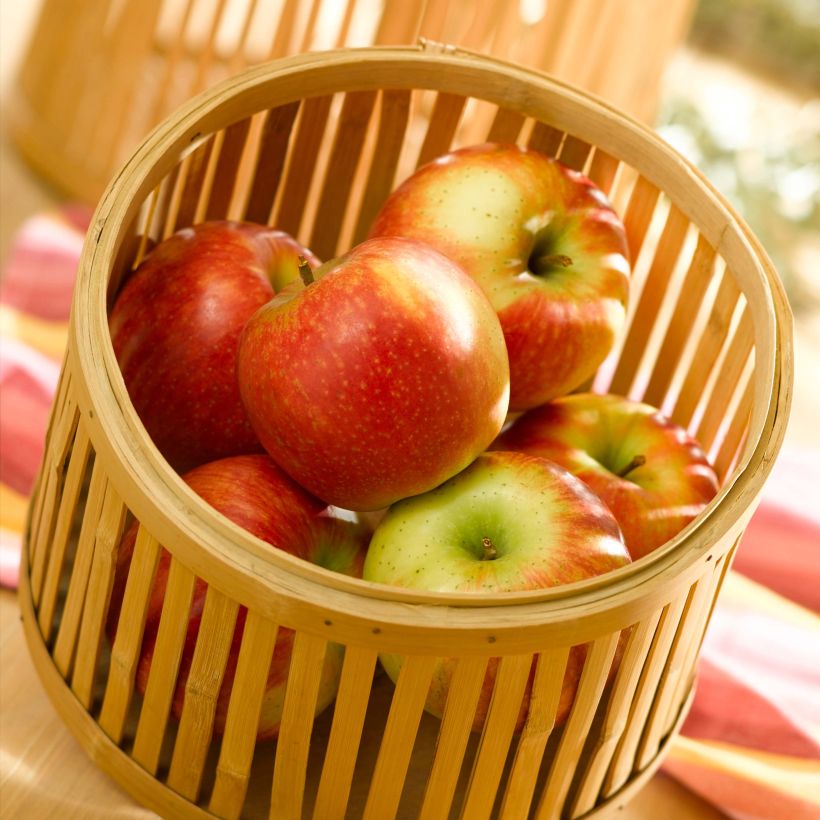

Plant habit
Fruit
Flowering
Foliage
Botanical data
Malus
domestica
Delbard Jubilé® 'Delgollune'
Rosaceae
Apple, Orchard apple, Table apple, Cultivated apple
Cultivar or hybrid
M106 (Ready-to-plant root ball - Goblet)
Other Apple trees
View all →Planting and care
Choose a sunny location for your Delbard Jubilé; the soil can be slightly chalky or acidic but not excessively. Dig a wide planting hole at least three times the size of the root ball. Simultaneously add organic matter (topsoil, compost...) and a base fertiliser such as bonemeal. Do not bury the graft collar. Stake if necessary. Water abundantly, even in winter, even if it rains. Fruit trees are ideally planted between October and March, outside of the freezing period. Container-grown plants can be planted year-round, except during high heat or frost periods.
In winter, you can add a small handful of wood ash, rich in potash, to improve fruiting. Watch out for potential aphid attacks during the season. A white powdery fungus, powdery mildew, may appear on the leaves in summer, but it does not harm fruit development in gardens. Harvest takes place in September. Only store picked fruits. Apples are stored with the stem downwards, on racks or crates. Choose a preferably completely dark, dry, cool place but frost-free.
Planting period
Intended location
Care
-
, onOrder confirmed
Reply from on Promesse de fleurs
Similar products
Haven't found what you were looking for?
Hardiness is the lowest winter temperature a plant can endure without suffering serious damage or even dying. However, hardiness is affected by location (a sheltered area, such as a patio), protection (winter cover) and soil type (hardiness is improved by well-drained soil).

Photo Sharing Terms & Conditions
In order to encourage gardeners to interact and share their experiences, Promesse de fleurs offers various media enabling content to be uploaded onto its Site - in particular via the ‘Photo sharing’ module.
The User agrees to refrain from:
- Posting any content that is illegal, prejudicial, insulting, racist, inciteful to hatred, revisionist, contrary to public decency, that infringes on privacy or on the privacy rights of third parties, in particular the publicity rights of persons and goods, intellectual property rights, or the right to privacy.
- Submitting content on behalf of a third party;
- Impersonate the identity of a third party and/or publish any personal information about a third party;
In general, the User undertakes to refrain from any unethical behaviour.
All Content (in particular text, comments, files, images, photos, videos, creative works, etc.), which may be subject to property or intellectual property rights, image or other private rights, shall remain the property of the User, subject to the limited rights granted by the terms of the licence granted by Promesse de fleurs as stated below. Users are at liberty to publish or not to publish such Content on the Site, notably via the ‘Photo Sharing’ facility, and accept that this Content shall be made public and freely accessible, notably on the Internet.
Users further acknowledge, undertake to have ,and guarantee that they hold all necessary rights and permissions to publish such material on the Site, in particular with regard to the legislation in force pertaining to any privacy, property, intellectual property, image, or contractual rights, or rights of any other nature. By publishing such Content on the Site, Users acknowledge accepting full liability as publishers of the Content within the meaning of the law, and grant Promesse de fleurs, free of charge, an inclusive, worldwide licence for the said Content for the entire duration of its publication, including all reproduction, representation, up/downloading, displaying, performing, transmission, and storage rights.
Users also grant permission for their name to be linked to the Content and accept that this link may not always be made available.
By engaging in posting material, Users consent to their Content becoming automatically accessible on the Internet, in particular on other sites and/or blogs and/or web pages of the Promesse de fleurs site, including in particular social pages and the Promesse de fleurs catalogue.
Users may secure the removal of entrusted content free of charge by issuing a simple request via our contact form.
The flowering period indicated on our website applies to countries and regions located in USDA zone 8 (France, the United Kingdom, Ireland, the Netherlands, etc.)
It will vary according to where you live:
- In zones 9 to 10 (Italy, Spain, Greece, etc.), flowering will occur about 2 to 4 weeks earlier.
- In zones 6 to 7 (Germany, Poland, Slovenia, and lower mountainous regions), flowering will be delayed by 2 to 3 weeks.
- In zone 5 (Central Europe, Scandinavia), blooming will be delayed by 3 to 5 weeks.
In temperate climates, pruning of spring-flowering shrubs (forsythia, spireas, etc.) should be done just after flowering.
Pruning of summer-flowering shrubs (Indian Lilac, Perovskia, etc.) can be done in winter or spring.
In cold regions as well as with frost-sensitive plants, avoid pruning too early when severe frosts may still occur.
The planting period indicated on our website applies to countries and regions located in USDA zone 8 (France, United Kingdom, Ireland, Netherlands).
It will vary according to where you live:
- In Mediterranean zones (Marseille, Madrid, Milan, etc.), autumn and winter are the best planting periods.
- In continental zones (Strasbourg, Munich, Vienna, etc.), delay planting by 2 to 3 weeks in spring and bring it forward by 2 to 4 weeks in autumn.
- In mountainous regions (the Alps, Pyrenees, Carpathians, etc.), it is best to plant in late spring (May-June) or late summer (August-September).
The harvesting period indicated on our website applies to countries and regions in USDA zone 8 (France, England, Ireland, the Netherlands).
In colder areas (Scandinavia, Poland, Austria...) fruit and vegetable harvests are likely to be delayed by 3-4 weeks.
In warmer areas (Italy, Spain, Greece, etc.), harvesting will probably take place earlier, depending on weather conditions.
The sowing periods indicated on our website apply to countries and regions within USDA Zone 8 (France, UK, Ireland, Netherlands).
In colder areas (Scandinavia, Poland, Austria...), delay any outdoor sowing by 3-4 weeks, or sow under glass.
In warmer climes (Italy, Spain, Greece, etc.), bring outdoor sowing forward by a few weeks.






























